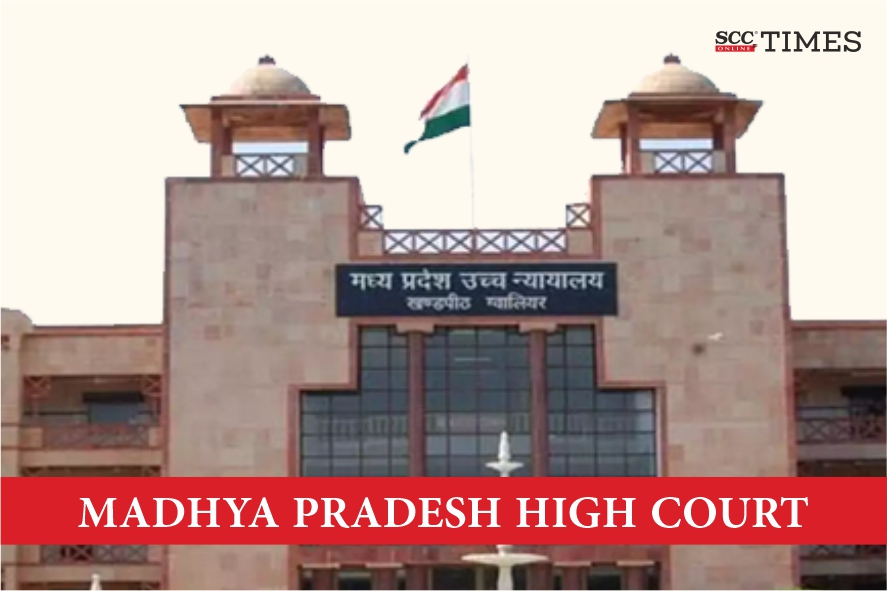Madhya Pradesh High Court: In a Criminal Revision petition filed under Section 3971 read with Section 4012 of the Criminal Procedure Code, 1973 (CrPC), challenging the framing of charges under against the petitioner for abetment to suicide under Section 3063 read with Section 344 of the Penal Code, 1860 (IPC), a single-judge bench of Sanjeev S. Kalgaonkar, J., set aside the order framing charges against the petitioner and held that “mere occasional harassment or misbehavior does not amount to abetment to suicide.”
In the instant matter, on 18-06-2023, the deceased’s husband reported to Police Station that his wife was found hanging from a ceiling fan with a saree when he returned home after taking their children to a barber shop. Following the report, an Unnatural Death Intimation was registered, and inquest proceedings began. The post-mortem concluded that the deceased died from asphyxia caused by hanging. The deceased’s family alleged that the deceased’s husband and his cousin (petitioner), were harassing the deceased, leading her to commit suicide. Consequently, an FIR was registered under Section 306 read with Section 34 of the IPC, and the petitioner was arrested. After investigation, charges were framed against the petitioner for abetment to suicide under Section 306 read with Section 34 IPC. The petitioner filed a Criminal Revision petition challenging the framing of charges by the Session Court.
The petitioner argued that he occasionally visited the deceased’s husband and had no role in the daily affairs of the deceased’s husband and the deceased household. It was contended that he lived 18 kms away in a different village and there is no evidence suggesting that the petitioner had abetted the deceased’s suicide. The petitioner further contended that the presumption under Section 113-A5 of the Evidence Act, 1882 does not apply in the present case as the deceased was married 12 years ago. However, the State argued that the parents of the deceased had directly alleged that the petitioner, along with the deceased’s husband, was involved in manhandling and harassing the deceased, leading to her suicide.
The Court examined the legal definitions of abetment under Section 1076 IPC and noted that abetment requires a positive act of instigation or aiding in committing suicide. The Court cited Gangula Mohan Reddy v. State of A.P., (2010) 1 SCC 750, where the Supreme Court held that “Abetment involves a mental process of instigating a person or intentionally aiding a person in doing of a thing … It also requires an active act or direct act which led the deceased to commit suicide seeing no option and this act must have been intended to push the deceased into such a position that he committed suicide.” and Hukum Singh Yadav v. State of M.P., and Sanju v. State of M.P., AIR 2002 SC 1998 which clarified that occasional misconduct or domestic disputes do not automatically amount to abetment.
The Court noted that that the allegations against the petitioner were too general, omnibus and “trivial in nature, which generally take place in every household” and did not demonstrate any direct act of instigation or encouragement. The Court stated that instigation means “to goad, urge, provoke, incite or encourage to do act” and there was no evidence of direct instigation or intention on the part of the petitioner to “goaded, urged, provoked, incited or encouraged” the deceased to commit suicide. The Court held that “mere occasional harassment or misbehavior does not amount to abetment to suicide.”
The Court held that the prosecution failed to establish a prima facie case of abetment to suicide against petitioner. The Court allowed the criminal revision, set aside the order of the Sessions Court framing charges under Section 306 read with Section 34 IPC, and discharged the petitioner from the case.
[Khairu v. State of M.P., 2024 SCC OnLine MP 5271, Decided on 20-08-2024]
*Judgment by Justice Sanjeev S. Kalgaonkar
Advocates who appeared in this case :
Rameshwar Rawat, Counsel for the Petitioner
Ankita Mathur, Public Prosecutor, Counsel for the Respondent/State
Sooraj Bhan Lodhi, Counsel for the Respondent/Complainant
Buy Penal Code, 1860 HERE
Buy Code of Criminal Procedure, 1973 HERE
1. Section 357-C of the Bharatiya Nagarik Suraksha Sanhita, 2023.
2. Section 360 of the Bharatiya Nagarik Suraksha Sanhita, 2023.
3. Section 108 of the Bharatiya Nyaya Sanhita, 2023.
4. Section 3(5) of the Bharatiya Nyaya Sanhita, 2023.
5. Section 117 of the Sakshya Adhiniyam, 2023.
6. Section 45 of the Bharatiya Nyaya Sanhita, 2023.








